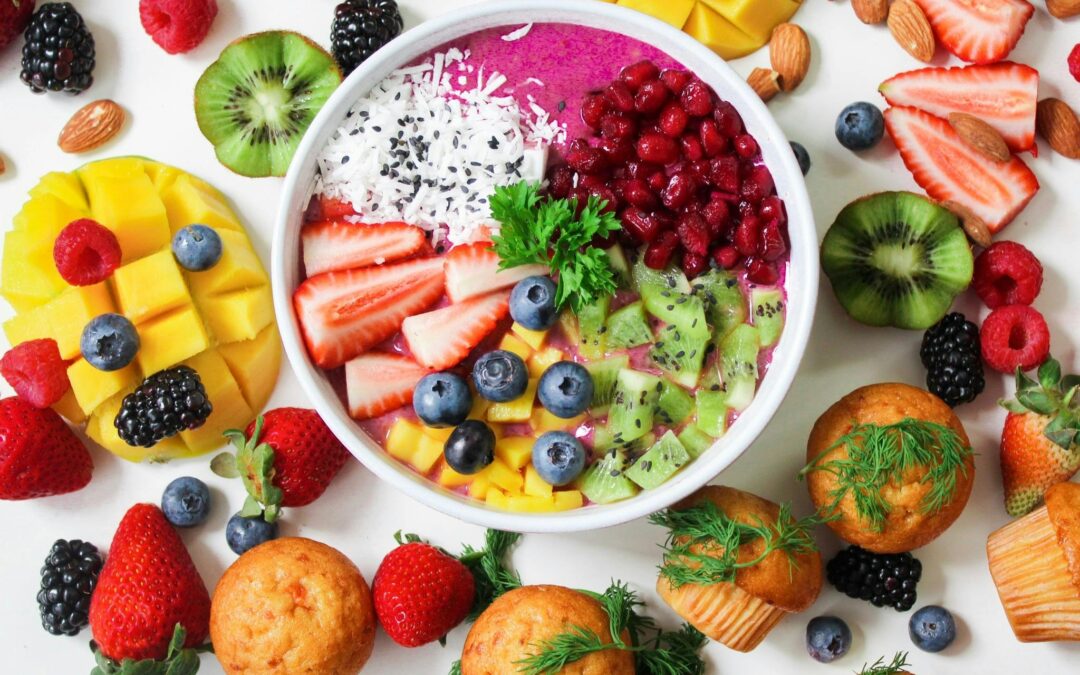
Nourish Your Mood: Exploring Foods That Boost Happiness and Well-Being
The Link Between Food and Mood
The connection between food and mood is intricate and multifaceted, influenced by various factors including biological, psychological, and social elements. Here are some key points highlighting the link between food and mood:
- Nutritional Impact: The food we consume directly affects our brain chemistry and neurotransmitter levels. For example, certain nutrients like omega-3 fatty acids, vitamins, and minerals play crucial roles in neurotransmitter synthesis and function. A balanced diet that includes a variety of nutrient-rich foods can support optimal brain health and mood regulation.
- Blood Sugar Levels: Fluctuations in blood sugar levels can impact mood and energy levels. Consuming foods with a high glycemic index (e.g., sugary snacks or refined carbohydrates) can lead to rapid spikes and crashes in blood sugar, contributing to mood swings, irritability, and fatigue. On the other hand, consuming complex carbohydrates, fiber, and protein can help stabilize blood sugar levels and promote more consistent energy and mood.
- Gut-Brain Axis: Emerging research suggests a strong connection between the gut and the brain, known as the gut-brain axis. The gut microbiota, composed of trillions of bacteria living in the digestive tract, can influence neurotransmitter production, immune function, and inflammation, all of which can impact mood and mental health. Consuming a diverse range of fiber-rich foods, fermented foods, and probiotics can support a healthy gut microbiome and potentially improve mood.
- Inflammation: Chronic inflammation has been linked to various mood disorders, including depression and anxiety. Certain dietary factors, such as processed foods, trans fats, and excessive sugar intake, can promote inflammation in the body. Conversely, an anti-inflammatory diet rich in fruits, vegetables, whole grains, healthy fats (e.g., olive oil, nuts, fatty fish), and antioxidants may help reduce inflammation and support better mood regulation.
- Emotional Eating: Food choices can also be influenced by emotions, leading to emotional eating behaviors. People may turn to comfort foods high in sugar, fat, and calories during times of stress or low mood as a way to cope. While these foods may provide temporary relief, they can contribute to a cycle of negative emotions and unhealthy eating patterns. Developing mindful eating habits and finding alternative coping strategies can help manage emotional eating and support overall well-being.
Understanding the link between food and mood empowers individuals to make more informed dietary choices that can positively impact their mental health and emotional well-being. By prioritizing a balanced diet, managing blood sugar levels, supporting gut health, reducing inflammation, and addressing emotional eating patterns, individuals can take proactive steps to support a healthier mind-body connection.
Mood-Boosting Foods to Include in Your Diet
By incorporating these mood-boosting foods into your diet, you can support your mental and emotional health while enjoying delicious and nutritious meals:
- Dark Leafy Greens: Packed with vitamins, minerals, and antioxidants, dark leafy greens like spinach, kale, and Swiss chard are known for their mood-enhancing properties and ability to support overall brain health.
- Berries: Rich in antioxidants and flavonoids, berries such as blueberries, strawberries, and raspberries can help reduce inflammation, improve cognitive function, and enhance mood.
- Nuts and Seeds: Nuts and seeds are excellent sources of omega-3 fatty acids, magnesium, and zinc, which play key roles in brain health and mood regulation. Incorporate walnuts, almonds, flaxseeds, and chia seeds into your diet for a mood-boosting boost.
- Legumes: Beans, lentils, and chickpeas are high in fiber, protein, and complex carbohydrates, which can help stabilize blood sugar levels and promote steady energy throughout the day.
Simple Plant-Based Snack Recipe: Avocado Toast with Cherry Tomatoes and Basil

Ingredients:
- 2 slices of whole-grain bread
- 1 ripe avocado
- 1 cup cherry tomatoes, halved
- Fresh basil leaves, torn
- Extra-virgin olive oil
- Sea salt and black pepper, to taste
Instructions:
- Toast the slices of whole-grain bread until golden brown.
- Mash the ripe avocado in a small bowl and spread it evenly onto the toasted bread slices.
- Arrange the halved cherry tomatoes on top of the avocado.
- Drizzle the avocado toast with extra-virgin olive oil and sprinkle with torn basil leaves, sea salt, and black pepper.
- Serve immediately and enjoy as a delicious and nutritious plant-based snack!
Incorporating mood-boosting foods into your diet doesn’t have to be complicated or time-consuming. With a little creativity and some simple ingredients, you can nourish your body and uplift your spirits with every bite.

